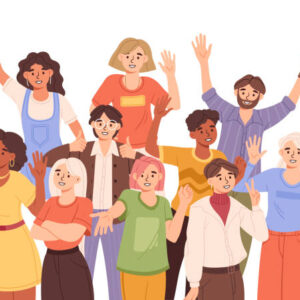The Modern Comedy Club
The role of great comedy clubs often goes uncelebrated, yet they are crucial to the success of stand-up comedians. Without these venues, pursuing a career in comedy would be nearly impossible. Comedy clubs emerged in the United States during the 1970s, offering a dedicated space for comedians to perform. Prior to that, comedians who weren’t famous enough to tour theaters would typically perform in variety or dinner shows alongside other entertainers. The arrival of the comedy club, a venue strictly for stand-up, revolutionized the comedy industry for both performers and audiences.
It’s a privilege for today’s comedians to perform at a time when fantastic comedy clubs are widespread across the country. However, much has changed since the 1970s, particularly the interaction between clubs, comedians, and their audiences. The recent growth of the “comedy bubble” has led to a surge in new clubs opening, but it has also raised important questions about what responsibilities comedy clubs now hold. In this post, I’ll explore how these dynamics have evolved, the new duties of comedy clubs, and how they can maintain their significance within the comedy world.
Booking
As mentioned earlier, the way comedy is distributed outside of clubs has shifted dramatically, prompting comedy clubs to adapt their booking strategies to align with the current landscape. In the early days of comedy clubs, from the ’70s to the ’90s, the main focus for booking was securing comedians with established credentials. In a time before the internet and social media, comedians had limited ability to promote their own shows, which meant that the responsibility of selling tickets fell almost entirely on the clubs. Promoting a comedian’s credentials, such as HBO specials, late-night television appearances, or sitcom roles, was the most effective way to attract an audience.
At that time, the typical audience mentality was:
“I’m going to XYZ Comedy Club to see a comedian.”
Clubs had to ensure they booked top-tier comedians to maintain their reputation. As long as the comedian had a notable credit, the club could sell tickets. If the performance was solid, the club could build a mailing list or phone list of attendees, securing repeat customers over time. In those early days, comedy clubs essentially acted as full-fledged marketing agencies, often employing sales teams to directly contact past patrons about upcoming performances. This made sense in an era where comedians had little direct interaction with their fanbase.
Fast forward to today, and the traditional methods of marketing have been replaced with email lists, text messages, and social media. Comedians now have the ability to promote themselves, which has shifted the marketing burden onto the performers. Today, most clubs no longer maintain in-house marketing teams, as the responsibility for promoting shows is now in the hands of the comedians. While this shift has made the booking process more complex, it has also led to a significant change in audience expectations. The modern mentality is now:
“I’m going to a comedy club to see XYZ Comedian.”
This raises the question: Should the club still be responsible for driving ticket sales, or should the comedian take on that task? While some clubs chase short-term success by booking influencers or the latest trending performers, the best clubs continue to prioritize the quality of their shows above all. This philosophy has led to success even on slower nights, as high-quality bookings attract loyal audiences who return time and again. Ideally, more clubs would adopt this model, but some face challenges—such as location and logistics—that make it difficult to book top-tier talent consistently. The ideal solution? Focus on nurturing local talent.
Talent Development
Many successful comedy scenes in smaller cities exist because local clubs take the time to nurture and develop local comedians. On the other hand, some major comedy scenes have withered because clubs neglect to invest in the growth of emerging talent. When a club dedicates time and resources to fostering local comedians, the entire community benefits. The typical progression for a comedian in a club’s talent development pipeline often follows this path:
Showcase Act → Weekend Host → Weekend Feature → Headliner → Touring Professional
When a club supports talent in this way, the comedians often rise to become nationally recognized, frequently returning to their home club to discover new talent or even dropping in for local showcases. This cycle not only strengthens the club’s reputation but also elevates the next wave of comedians. Though there’s no single blueprint for developing talent, certain traits are common to clubs that consistently produce top-notch comedians.
A key trait of successful development-focused clubs, regardless of their size, is transparency. A clear and well-communicated advancement path helps solve many problems. If a comedian doesn’t know how to progress within a club’s system, they may become disheartened and lose faith in the process.
Another essential aspect is maintaining internal quality control. When bookers fail to regularly scout and evaluate local talent, they may begin to rely on personal recommendations, which can lead to cliques and favoritism, stifling fresh talent. A strong talent development pipeline might look something like this:
Scouted Mic/Showcase → Booked Showcase → Host → Feature → Headliner
The best clubs that focus on development guide their comedians through each stage of this process. However, when bookers become disengaged, mediocrity can take hold. Comedians who aren’t ready to perform at higher levels might be pushed through, and even previously strong performers may become complacent. To keep the level of performance high, clubs must be willing to cut or demote performers who no longer meet the standard, allowing newer, more promising talent to rise.
A common mistake is allowing comedians themselves to take charge of talent development. Having a comedian in this role often leads to biases, with performers trading favors or trying to “buy” stage time. The person overseeing talent development should be free from these off-stage dynamics and capable of making objective, impartial decisions.
There will inevitably be disparities in opportunity within a well-functioning talent pipeline. Some comedians will get more stage time, rise faster, and build larger followings more quickly. It’s important to reward ambition and success. However, this can sometimes lead to resentment from those who feel they’re being left behind, which is why talent development should be kept separate from booking decisions.
Not all clubs are in a position to develop talent due to the size of their local scene. If there aren’t enough comedians ready to advance, then hosting a showcase might not be feasible. Development can take time, and clubs should be patient and realistic about the talent available. Above all, clubs must maintain a focus on delivering great shows for their audiences. The best clubs strike a balance between fostering local talent and booking high-caliber performers, ensuring that the audience is consistently treated to top-notch comedy.
Environment
The success of a comedy club goes beyond just booking and talent development; it also relies heavily on the atmosphere it creates. A club’s environment is critical in ensuring both comedians and audiences have a positive experience. The best clubs pay attention to every detail: designing the showroom to minimize distractions from the bar, providing security to handle hecklers and enthusiastic audience members, keeping the green room tidy and comfortable for performers, and training staff to treat both comedians and guests with respect and professionalism.
Equally important is how clubs treat their performers. Fair and timely compensation helps build trust and loyalty among comedians. Additionally, providing high-quality photos and videos from performances gives comedians valuable promotional material to use in building their own audiences. As comedians grow their fanbases, they become more valuable to the club, leading to better ticket sales and a more vibrant comedy scene. By investing in their comedians—financially and with resources to help them grow—the club reaps the benefits of a stronger partnership, where comedians are motivated to continue improving and investing in their own success.
A well-run comedy club isn’t merely a place to perform; it’s a venue where comedians can refine their craft, audiences can experience unforgettable performances, and the art of stand-up comedy can continue to thrive. Clubs that recognize the value of investing in both their talent and their operations are the ones that will not only survive but become cornerstones of their communities, providing outstanding entertainment while fostering an environment for comedians to flourish.










